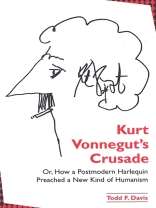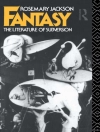Explores the moral and philosophical underpinnings of Vonnegut’s work.
‘I’ve worried some about why write books when presidents and senators and generals do not read them, and the university experience taught me a very good reason: you catch people before they become generals and senators and presidents, and you poison their minds with humanity. Encourage them to make a better world.’ – Kurt Vonnegut
Kurt Vonnegut’s desire to save the planet from environmental and military destruction, to enact change by telling stories that both critique and embrace humanity, sets him apart from many of the postmodern authors who rose to prominence during the 1960s and 1970s. This new look at Vonnegut’s oeuvre examines his insistence that writing is an ‘act of good citizenship or an attempt, at any rate, to be a good citizen.’ By exploring the moral and philosophical underpinnings of Vonnegut’s work, Todd F. Davis demonstrates that, over the course of his long career, Vonnegut has created a new kind of humanism that not only bridges the modern and postmodern, but also offers hope for the power and possibilities of story. Davis highlights the ways Vonnegut deconstructs and demystifies the ‘grand narratives’ of American culture while offering provisional narratives-petites histoires-that may serve as tools for daily living.
Mục lục
Acknowledgments
1. Postmodern (Midwestern) Morality: The Act of Affirming Humanity in a Screwed-up World
2. Searching for Answers in the Early Novels: Or, What Are We Here for Anyway?
3. Apocalyptic Grumbling: Postmodern Righteousness in the Late Novels
Notes
Works Cited
Index
Giới thiệu về tác giả
Todd F. Davis is Associate Professor of English at Penn State at Altoona. He is coauthor (with Kenneth Womack) of Formalist Criticism and Reader-Response Theory and coeditor (with Womack) of Reading the Beatles: Cultural Studies, Literary Criticism, and the Fab Four (also published by SUNY Press), Mapping the Ethical Turn: A Reader in Ethics, Culture, and Literary Theory, and The Critical Response to John Irving. He is also the author of a book of poetry, Ripe.












